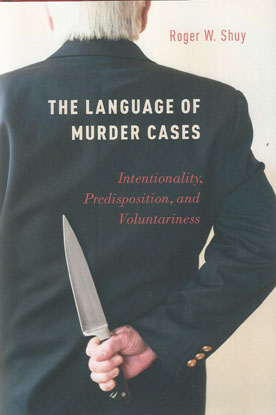
The Language of Murder Cases describes fifteen court cases for which Roger Shuy served as an expert language witness, and explains the issues at stake in those cases for lawyers and linguists.
Investigations and trials in murder cases are guided by the important legal terms describing the mental states of defendants-their intentionality, predisposition, and voluntariness. Unfortunately, statutes and dictionaries can provide only loose definitions of these terms, largely because mental states are virtually impossible to define.
Their meaning, therefore, must be adduced either by inferences and assumptions, or by any available language evidence-which is often the best window into a speaker's mind. Fortunately, this window of evidence exists primarily in electronically recorded undercover conversations, police interviews, and legal hearings and trials, all of which are subject to linguistic analysis during trial.
This book examines how vague legal terminology can be clarified by analysis of the language used by suspects, defendants, law enforcement officers, and attorneys. Shuy examines speech events, schemas, agendas, speech acts, conversational strategies, and smaller language units such as syntax, lexicon, and phonology, and discusses how these examinations can play a major role in deciding murder cases. After defining key terms common in murder investigations,
Shuy describes fifteen fascinating cases, analyzing the role that language played in each. He concludes with a summary of how his analyses were regarded by the juries as they struggled with the equally vague concept of reasonable doubt.